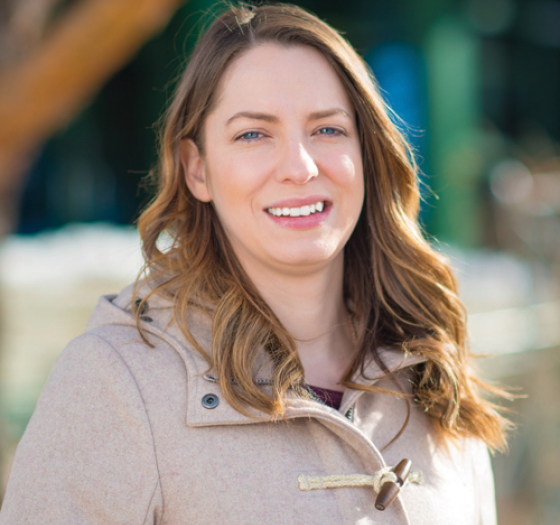
At 21, Brandi Milko was prepared to become a doctor. She had finished her bachelor’s degree in health sciences, was on the waiting list for the Northern Ontario School of Medicine (NOSM), and was working on her master’s degree in biology at Carleton University. But she says she felt like her life wasn’t headed in the direction she wanted. “I kind of had a moment where I thought to myself: what am I doing with my life right now?”
Following her intuition, Milko withdrew from the master’s program and moved back home to Kenora, where she went through a time of reflection. “I felt lost…things weren’t going well for me,” she recalls, adding her uncertainty took its toll on her health.
Milko visited a nurse practitioner (NP) at the Sunset Country Family Health Team (FHT), confessing she was stressed because she didn’t know what she wanted to do with her life. She had always imagined it would involve helping people by seeing them as a whole person, not just their symptoms. After sharing this with the NP, she was surprised at the suggestion she consider nursing.
Milko was hesitant because she had never seen a nurse in action, and didn’t know what nursing was about. A few weeks later, she made arrangements to shadow the NP, and left the experience amazed and drawn in by the profession. Taking a leap of faith, she applied to the Accelerated Nursing Program at McMaster University and, after being accepted in 2012, she withdrew her name from NOSM’s waiting list.
From her first class to her last, Milko felt inspired and impressed. “I just felt like every value that nursing had seemed to resonate for me,” she says, admitting she fell in love with how patient-centred and holistic the profession is.
Primary care RN Brandi Milko always knew she would return to the north one day.
She graduated in 2014, and quickly found a job as an RN on the clinical resource team at Joseph Brant Hospital in Burlington. She cared for surgical and medical patients, collaborated with other nurses, and provided nursing assessments and care.
Milko wanted to develop her nursing skills and gain more experience before returning home to work in northern Ontario. She always knew she would settle back in the north. But it wasn’t long after her graduation when her father called to tell her about an opportunity to cover a one-year maternity leave as a community health nurse. She applied at the Waasegiizhig Nanaandawe’iyewigamig Health Access Centre in Kenora in 2015, and was overjoyed to be offered the position.
Community nursing was different from anything she had done before, Milko recalls. She was in charge of everything from baby checks, to immunizations, infectious disease screenings, sprains, sore throats and much more. “What stood out to me was the strength and resilience of the people I met,” she says.
There were individuals who struggled to get clean water for their families, access healthy fruits and vegetables, and suffered with chronic conditions. However, they continued to try to be active participants in their health, Milko says.
The more she learned about her patients, the more she liked community health nursing. But when her one-year contract ended, Milko had no choice but to move on.
Deciding to stay home, she began working in the emergency department at Kenora’s Lake of the Woods District Hospital. Emergency nursing in the north requires resourcefulness, she says. “You have to be a generalist,” which is very similar to nursing in the community.
When an opportunity arose to go back to community nursing in 2016, Milko was excited, particularly because it was at the same FHT she had visited and met the NP who inspired her to go into nursing.
Milko has come full circle, and has been a primary care RN at the Sunset Country FHT for two years now. She provides comprehensive health assessments, screening, lifestyle support, chronic disease management, and education to her patients while also running a hypertension clinic.
She is a passionate advocate for nursing in the north, and hopes to recruit more nurses to work in her community. She wants to ensure there are enough supports so nurses can continue to provide essential care to some of Ontario’s smallest and most remote communities.
Milko also hopes to pilot programs to offer preventive health services to hard-to-reach populations and teens. And maybe one day she too can inspire an unsuspecting teen who is unsure what their future holds.